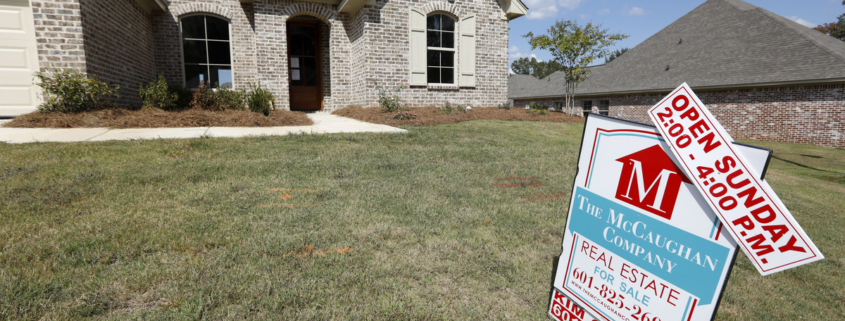Maine’s real estate market shifts away from open houses

Housing
This section of the BDN aims to help readers understand Maine’s housing crisis, the volatile real estate market and the public policy behind them. Read more Housing coverage here.
Open houses, which were once considered a common part of the home sale process, have fallen by the wayside in recent years due to changes in Maine’s real estate market.
While open houses are still useful in some cases, real estate agents agree they aren’t needed in order to sell a property. The practice was primarily killed by new technology, the pandemic and Maine’s frenzied housing market.
The dwindling number of open houses across the state is one of many ways the state’s housing market — and housing marketing strategies — have transformed in a few short years. It also points to the ripple effects of the global pandemic that are still being felt today.
The state’s housing market has cooled considerably from the fever pitch it reached in the heart of the pandemic, but properties are still changing hands quickly. That doesn’t leave much time for brokers to schedule and hold open houses, said Jeff Harris, Maine Association of Realtors president and a broker at Harris Real Estate in Farmington.
Homes sat on the market for an average of nine days before being snatched up in August 2021, according to Redfin. Last month, properties were available 41 days before closing.
“Open houses would be scheduled and everybody would put them in their calendars, then a day later you’d get a note saying the house is under contract and the open house is canceled,” said Chris Lynch, president and owner of Legacy Properties Sotheby’s International Realty, which has six offices throughout the state.
But open houses were becoming less common long before the pandemic. As the housing market recovered from the recession that hit the U.S. in 2007, houses were selling faster and the habits of house hunters were shifting.
The pandemic then halted open houses altogether in 2020, as larger indoor gatherings weren’t allowed. When they returned, guests were required to wear face masks, gloves and even shoe coverings, Lynch said.
While the slow return of open houses was rocky at first, Lynch said their absence showed they weren’t actually needed.
“We found that there really wasn’t a meaningful correlation between open houses and actually selling the property,” Lynch said.
Open houses draw mostly “looky loos” who only want to take a peek inside a home and aren’t interested in buying it, Lynch said. Sellers often decide against holding an open house in order to avoid inviting those people in, especially when an open house doesn’t guarantee an offer.
Most serious buyers work with a real estate agent to find a house, which allows them to schedule private showings of homes, Harris said. Shoppers usually prefer having time and privacy to walk through a home alone.
“We have a lot of technology at our fingertips that allow us to set up showings easily,” Harris said. “We get on our iPhones, type in the address, it goes right to the listing broker and we request a showing for, say, 11 on Thursday.”
Additionally, technology has advanced to allow interested buyers and nosey neighbors alike to see a home’s interior without ever stepping foot inside, negating the need for an open house.
Online listings usually include dozens of photos that show every inch of a property’s interior and exterior. In some cases, virtual tours of a property take the viewer through the home, which gives a clear idea of the building’s layout.
“With the new technology, now when people come into a home for the first time, it’s almost like a second showing,” Lynch said. “Interested buyers look behind all the doors and cabinets that were closed in the pictures because they already know everything that was exposed.”
While open houses have become less common and aren’t necessary, Harris said they can still be useful in some cases. For example, an open house often generates interest and could get a seller multiple offers, especially for a clean, turnkey home in a desirable neighborhood.
Open houses can also be useful for out-of-state buyers who can ask local family or friends to attend an open house in their place and provide feedback, Lynch said.





Leave a Reply
Want to join the discussion?Feel free to contribute!